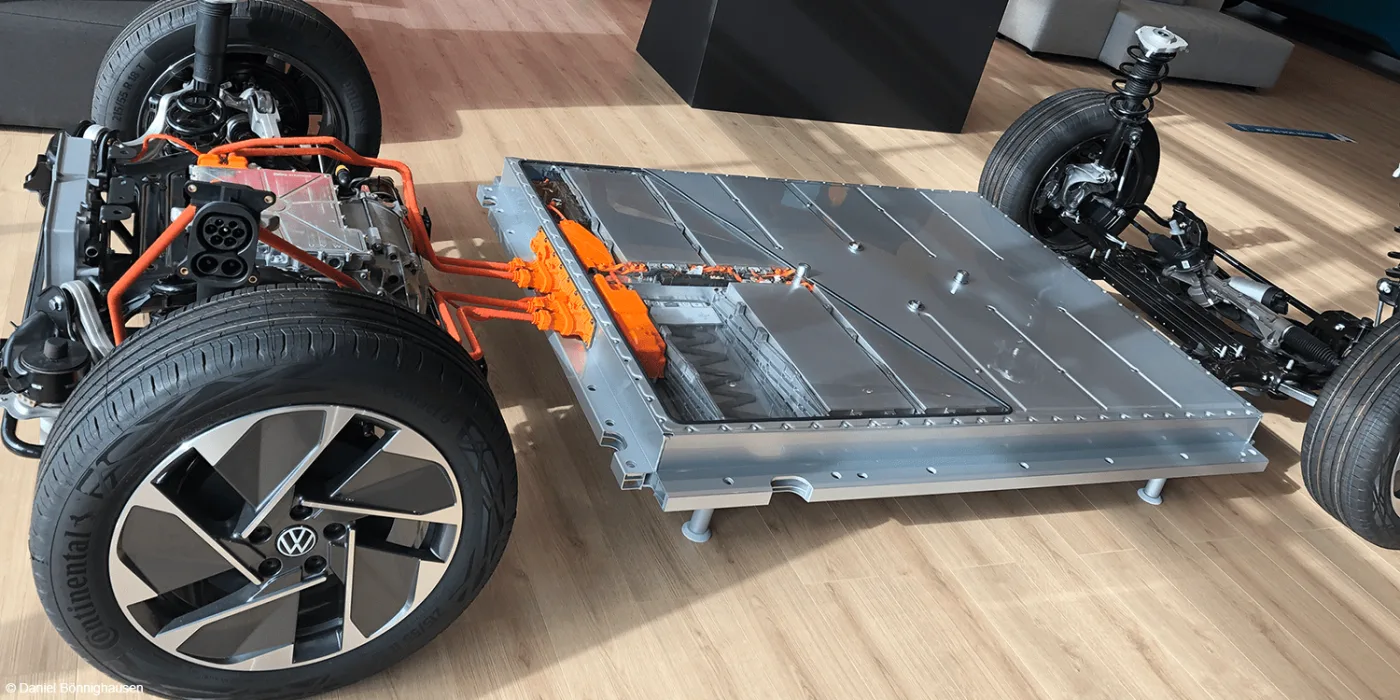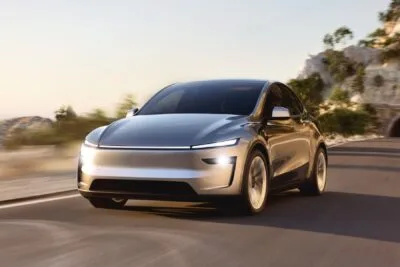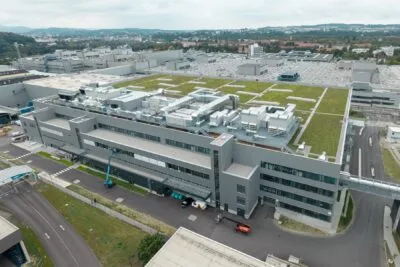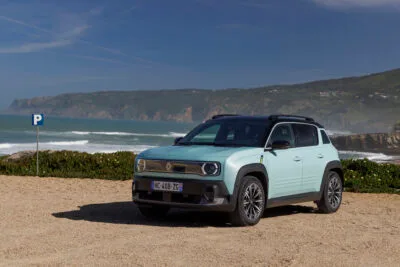VW to boost range and charging performance for the MEB+
In a dossier on its website, Volkswagen has now officially confirmed details of the MEB+, the planned enhanced version of its MEB electric car kit. The MEB+ will use the new unit cell – for more range and shorter charging times.
Specifically, VW is talking about ranges of up to 700 kilometres and promises a corridor of 175 to 200 kW for charging power. But VW had already mentioned these figures in April, when the first technical improvements to the MEB were announced – without mentioning the MEB+ package. It is not known whether the introduction of the new unit cell in the MEB was already planned at that time or how the 700-kilometre range and 200 kW charging power are to be achieved.
It is unclear how big the improvements to the MEB+ are. Some MEB vehicles with the current cells and the latest software have already achieved up to 180 kW at HPC charging stations, so there is not much room for improvement: because with the battery voltage of 400 volts and the CCS charging stations currently limited to 500 amps, no more than 200 kW is possible anyway. However, if the MEB+ vehicles could maintain this charging power for a longer period than before, this would mean shorter charging times for customers.
The MEB model with the highest WLTP range to date is the ID. Aero, which reaches 620 kilometres. Here, too, the leap to 700 kilometres standard range would be rather small – but probably still technically challenging. In the press release on the MEB+, the Wolfsburg company also promises “significant leaps” in automated driving functions.
Unit cell under the MEB+
It had become apparent in recent weeks that, contrary to earlier plans, Volkswagen would continue to develop the MEB platform at a high level of investment. The new VW Group CEO Oliver Blume and VW brand CEO Thomas Schäfer are not only putting their predecessors’ model and production planning to the test, but in Blume’s case also the development organisation with the Cariad software unit. Since in the course of all these considerations the introduction of the SSP electric platform in the VW flagship Trinity will probably be delayed from 2026 by at least two years (other reports even speak of 2030), Volkswagen needs a technical platform on which new models and the facelifts of existing models can be built in the coming years.
The SSP is unlikely to be that yet, and the MEB is already being heavily criticised in some quarters – for example in comparison to Hyundai’s E-GMP. So if new models in the years 2025 to 2027 were still based on this technology, they would have a very hard time on the market. For this reason, there was already speculation weeks ago that VW would invest billions in the further development of the MEB and that the company’s unit cell, which will be produced in Salzgitter from 2025 onwards, would also be used in the MEB – actually, the unit cell was supposed to make its debut in the Trinity.
However, VW has not yet indicated which battery sizes will be used in vehicles based on the MEB+ with the standard cell – currently 58 kWh and 77 kWh are the most commonly used battery sizes in the MEB. The long version of the ID. Buzz will probably be the first to use a larger configuration with more than 100 kWh with the current battery generation.
Meanwhile, brand boss Thomas Schäfer has also publicly used the MEB+ designation. The announcement was about the investment of €460 million in the Wolfsburg plant to build MEB vehicles there in the future – starting in 2023 with the current ID.3. Schäfer held out the prospect of a compact SUV as the second MEB model from Wolfsburg (previously called the ID.3 X), which will be based on the enhanced MEB+. However, the MEB+ comes too late for the announced model update of the ID.3 next spring.
The plan to launch ten new MEB models by 2026 is also confirmed. In total, Volkswagen plans to produce 10 million electric vehicles with the MEB and MEB+. In addition to its own group brands, this probably includes the 1.2 million electric cars that Ford plans to build in Cologne with two MEB-based models, as well as the more than one million electric cars that Mahindra plans with five MEB models. So far, Volkswagen says it has produced more than 670,000 electric cars based on the MEB, 500,000 of which are VW’s ID series.
With reporting by Sebastian Schaal, Germany.





0 Comments